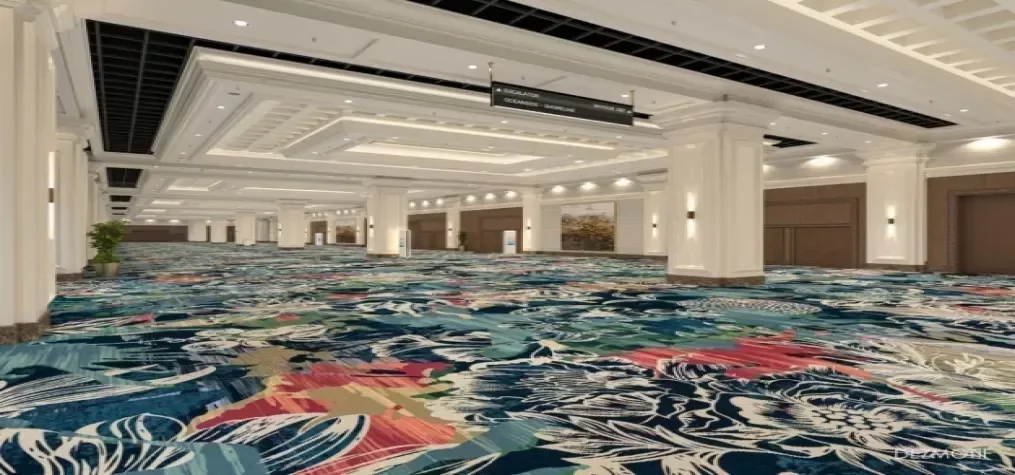The Unique Challenges of Planning a Healthcare Meeting

By Alexa Newman and Benjamin Rabe
Even if you have years of event-planning experience, healthcare meetings are a different ballgame. As a healthcare meeting planner, you’ll need to be up-to-speed on the ever-changing rules, restrictions and legislation of this complex industry. From audiovisual considerations to continuing medical education requirements, the following tips will help prepare you for a successful healthcare meeting.
Get to Know Your Speakers and Their Presentations
Healthcare speakers are often experts – not only in their area of specialty, but in the art of public speaking. As a result, they can “talk the talk” and know if something isn’t right. Your A/V team will need to understand this unique dynamic in order to work effectively with each speaker.
Healthcare meetings typically have multiple speakers in one session, which may include a panel or multiple speakers in short intervals. Since this affects presentation collection, communication with your education team on the number of speakers per timeslot is key. Here are several speaker-preparation considerations to keep in mind:
· Will the education team have time to collect all materials in advance and run them from one system?
· Do the speakers tend to make last-minute changes and expect to run their own presentations?
· Is the A/V team prepared to assist with changing microphones and other technology needs?
· Is the speaker-ready room staffed with an expert A/V tech to ensure everything runs smoothly?
All about Audiovisual
While healthcare meetings may not require flashy productions, your audiovisual capabilities should be state-of-the-art. Presentations may require higher-end projection technology due to the nature of the images, such as X-rays and microscopic images. Your speaker may also request a broadcast of a medical procedure. A special technician could be required based on the projection type and audiovisual requirements.
If the meeting features a live stream from a hospital, for example, this requires considerable prep work. The hospital A/V, venue A/V and hired A/V must communicate directly together. In other words, avoid taking on the role of a middleman or messenger. You’ll need to coordinate an in-person planning session months ahead of time when you will perform a live test with all A/V parties and equipment. Remember to budget for travel, expenses and technician time for this prep session.
CE/CME requirements
To ensure healthcare professionals continue to learn new technology, procedures and skills, healthcare meetings typically incorporate continuing education (CE/CME) accreditation.
When planning a healthcare meeting, familiarize yourself with the Accreditation Council for Continuing Medical Education’s Standards for Commercial Support (accme.org). The overarching principle is that an organization should maintain complete control over the content of accredited education.
For example, when we were preparing for a healthcare association event, we learned that several conference speakers invited a vendor representative to participate in a planning conference call. However, according to the Standards for Commercial Support, it is expressly prohibited for employees of commercial interests to be involved in the planning of any accredited education. Therefore, it was not appropriate for a vendor to join the planning call. The education team explained the standards to the speakers and vendor. The vendor was happy to refrain from the call, and the speakers were appreciative because they were not aware of this provision.
Here are a few more tips to help you navigate the CE/CME landscape:
· Since some CE/CME accreditation requires live audience response – tracking who says what and when – you’ll want to work closely with your education team to understand what is needed.
· Learn the rules regarding sponsorships and accreditation. For example, there may be restrictions on placing accredited education (such as poster presentations) in the same room as commercial activities (such as an exhibit hall).
· All content in a CME/CE-approved event may require a physician or clinician representative to be on the planning committee. In addition, content may need to be reviewed by the committee to confirm that it is unbiased and to address any potential conflicts of interest.
· You’ll need to find out the CE/CME requirements related to the evaluation of sessions and speakers. This information is reported back to the accredited provider. When coordinating mobile app evaluations, attendee surveys, etc., you’ll need to bring in team members with knowledge of the requirements to collect the necessary information.
Other considerations
Medical equipment and procedures may be required at healthcare meetings. As a result, the cost of the equipment as well as venue policies on handling the equipment should be considered. If a workshop involves simulated patients and procedures, for example, will hospital beds need to be rented or would tables with pillows suffice? Another example is oxygen tanks. Some hotels have regulations about storage of such equipment due to the flammable nature of pressurized gas.
If the meeting has medical procedures or demonstrations onsite, you’ll want to review the legal constraints. For example, a client organization serving dental professionals was considering a live acupuncture demonstration at its annual conference. Unfortunately, since the speaker wasn’t licensed in the state in which the meeting was held, the hotel would not allow it.
Unlike other industries, hazardous materials or waste also may be a consideration for your healthcare meeting. If your organization will be handling hazardous waste, chemicals, cadavers or human body parts, you’ll need to determine a disposal plan with the venue, and you’ll need to factor in the extra costs with your general services contractor. Remember also to secure agreements with the hotel or the event facility.
Prior to planning your next healthcare meeting, take note of these considerations and do your homework on the state and local laws as they apply to your specific healthcare event. Staying up to date on this heavily regulated industry is crucial to the success of your healthcare meeting.
Alexa Newman and Benjamin Rabe are senior managers in Event Services at SmithBucklin, the association management and services company more organizations turn to than any other. Additionally, SmithBucklin Event Services members Ellie Hurley, Robb Rabito and Katie Walsh contributed to this article. For information, contact us at anewman@smithbucklin.com or brabe@smithbucklin.com, or visit www.smithbucklin.com.


Add new comment